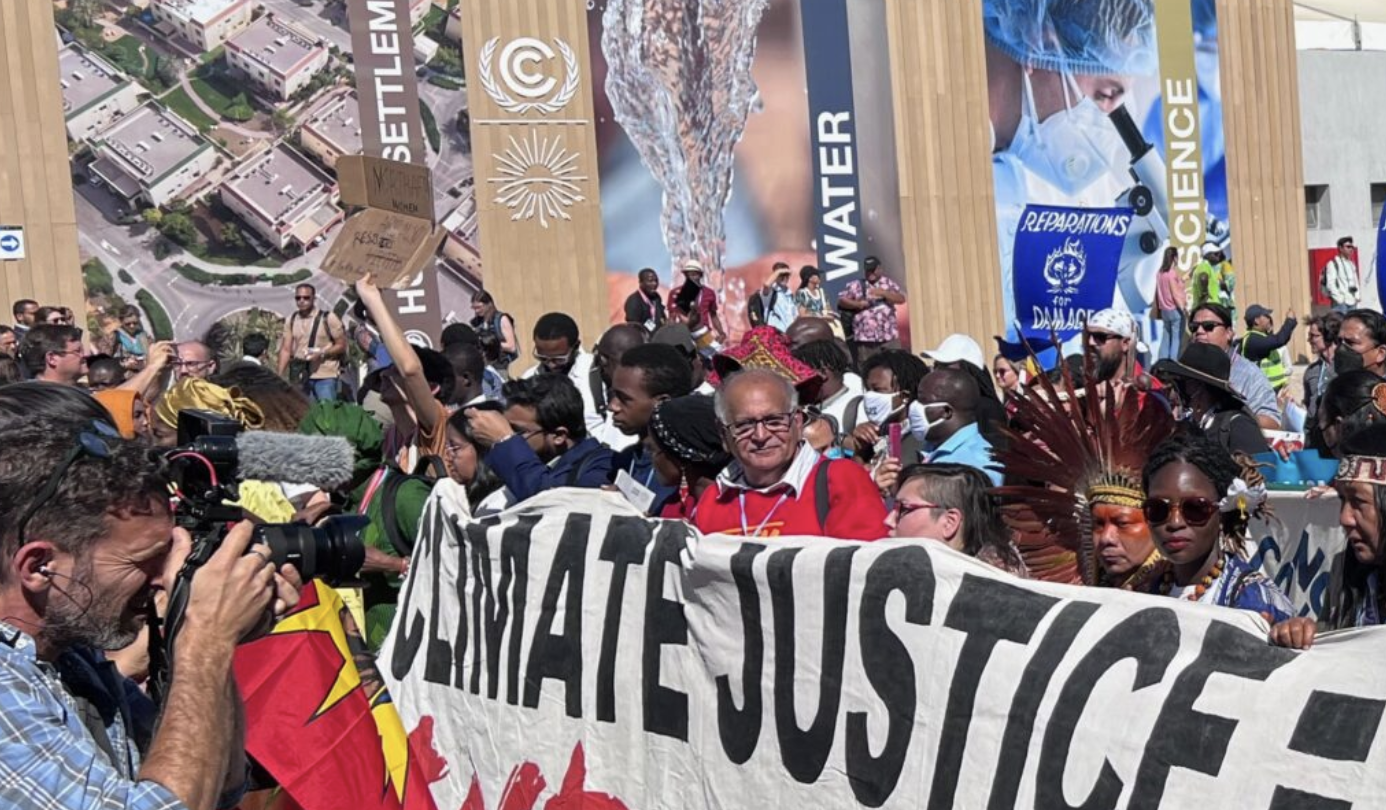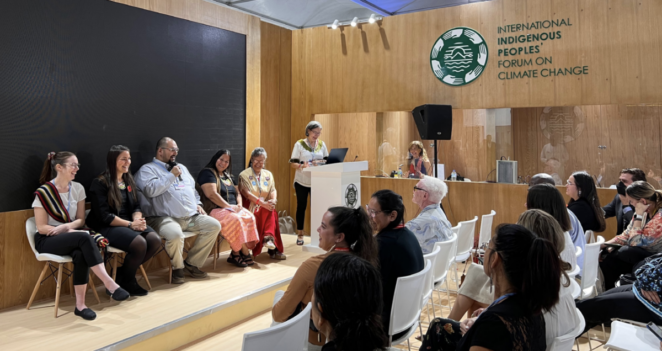Advancing climate policy: harnessing Indigenous knowledge at the science-policy interface

Introduction
Bridging Indigenous and scientific knowledge systems is not a simple task. It requires the active engagement of Indigenous knowledge holders and institutions in policy processes at different scales. An uncritical approach to knowledge integration can even further marginalize and disempower Indigenous knowledge. Collaborative and respectful work can create more effective and equitable policies that serve the needs of everyone and uphold the principles of dignity enshrined in the Universal Declaration of Human Rights.
This policy brief focuses on a case study of Indigenous Peoples’ experience in climate policy negotiations under the United Nations Framework Convention on Climate Change (UNFCCC), with the Paris Agreement as a key milestone. Through literature review, key informant interviews and face-to-face engagements during COP27, we trace the role and advocacy of Indigenous Peoples at the Conference of the Parties (COP) as well as key actors, priorities, challenges and lessons learned leading up to and after the Paris Agreement.
This article is an abridged version of the original text, which can be downloaded from the right-hand column. Please access the original text for more detail, research purposes, full references, or to quote text.
Key messages
- Over the past two decades, Indigenous Peoples have succeeded in inserting critical provisions in the Paris Agreement that represent their needs, priorities and aspirations. This contributes to making the Agreement the first legally binding, multilateral climate change instrument to recognize human rights.
- Indigenous Peoples’ sustained mobilizations both under and outside the UNFCCC are the result of momentum gradually gained from limited engagement in the early years.
- Despite the progress achieved through the Paris Agreement, challenges embedded in the design and implementation of negotiation processes continue to hinder Indigenous Peoples’ participation and the inclusion of Indigenous knowledges in implementing the Agreement and achieving its goals.
- Researchers have found limited references to Indigenous Peoples and knowledge in Nationally Determined Contributions (NDC) documents in the implementation of the Paris Agreement. Indigenous communities are often seen as victims or beneficiaries and their knowledges overlooked and discounted as “non-scientific”.
Looking ahead: Reflections on COP27
At COP27 in Egypt – six years after the Paris Agreement and 14 years since the creation of the Indigenous caucus – Indigenous Peoples, including Indigenous youth and Indigenous women, raised their voices loudly for their own agendas. Yet many of the same structural and bureaucratic challenges continue to limit their influence over policymaking. Activists at COP27 reiterated the disproportional difficulties that Indigenous attendees had to overcome to make it to the COP, ranging from COVID-19-related measures to security clearance to fundraising.

While COP27 had the highest attendance of Indigenous Peoples to date, some Indigenous delegates were banned from attending partway through the event. More importantly, despite the increased presence, language safeguarding human rights and Indigenous Peoples’ rights were still belatedly removed in the final text of COP27. Thus, much work remains to be done.
Moving forward, multilateral environmental governance frameworks such as the Paris Agreement must be aware of and respond to these challenges to ensure that Indigenous Peoples and their knowledges are meaningfully involved in discussions and negotiations. This would advance their collective rights, protect their welfare and ways of life, and contribute to resolving pressing environmental challenges. To paraphrase Andrea Carmen, it is critical to ensure that Indigenous Peoples are not only provided with a seat at the table but also served the same meal as others.
Suggested Citation:
Tran, M., & Salamanca, A. (2023).Advancing Climate Policy: Harnessing Indigenous Knowledge at the Science-Policy Interface. SEI Working Paper. Stockholm Environment Institute. https://doi.org/10.51414/sei2023.029
Related resources
- Indigenous people, water, and climate change
- Indigenous Knowledges and Perspectives on Climate Adaptation
- MRD Talk #02: Engaging with Indigenous and local knowledge for the conservation of mountain landscapes
- Addressing Indigenous Peoples’ Marginalisation at International Climate Negotiations: Adaptation and Resilience at the Margins
- The use of local, indigenous and traditional knowledge and practices for adaptation
(0) Comments
There is no content